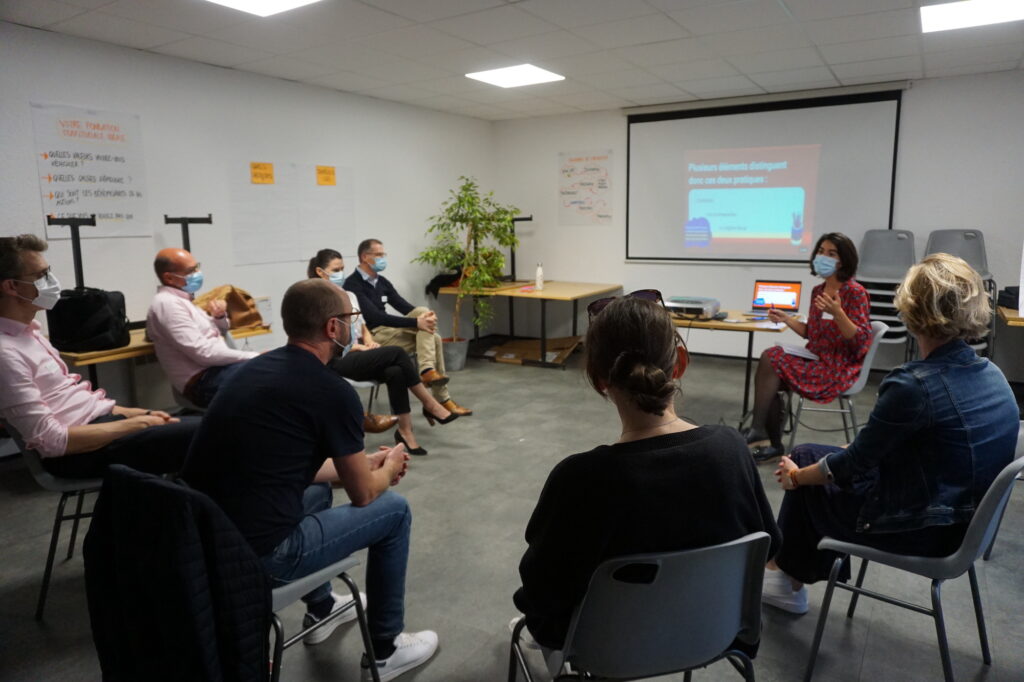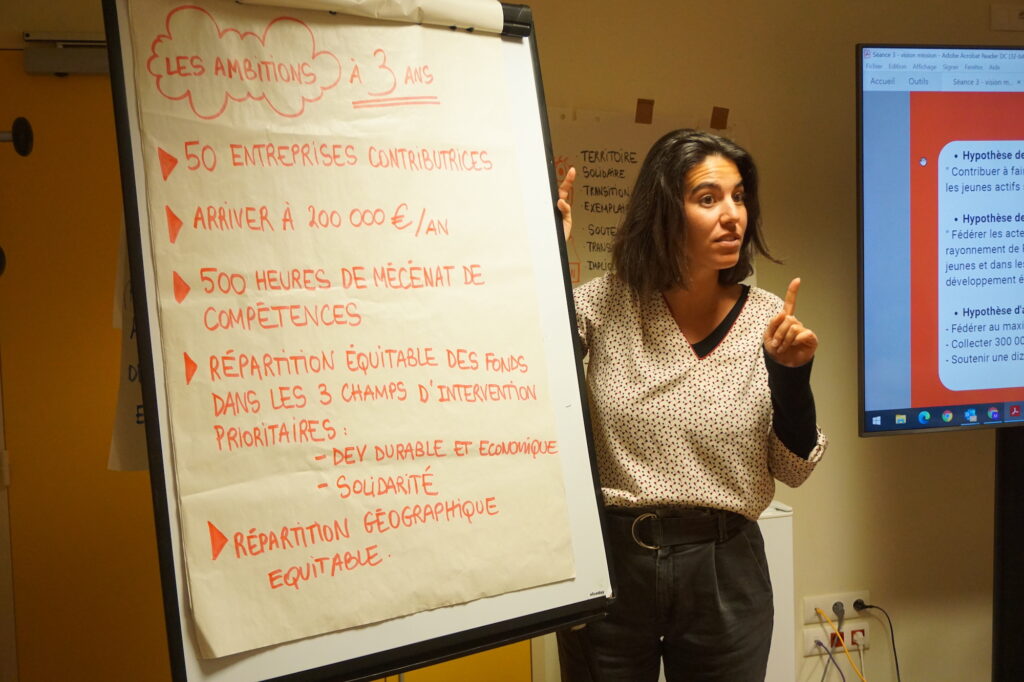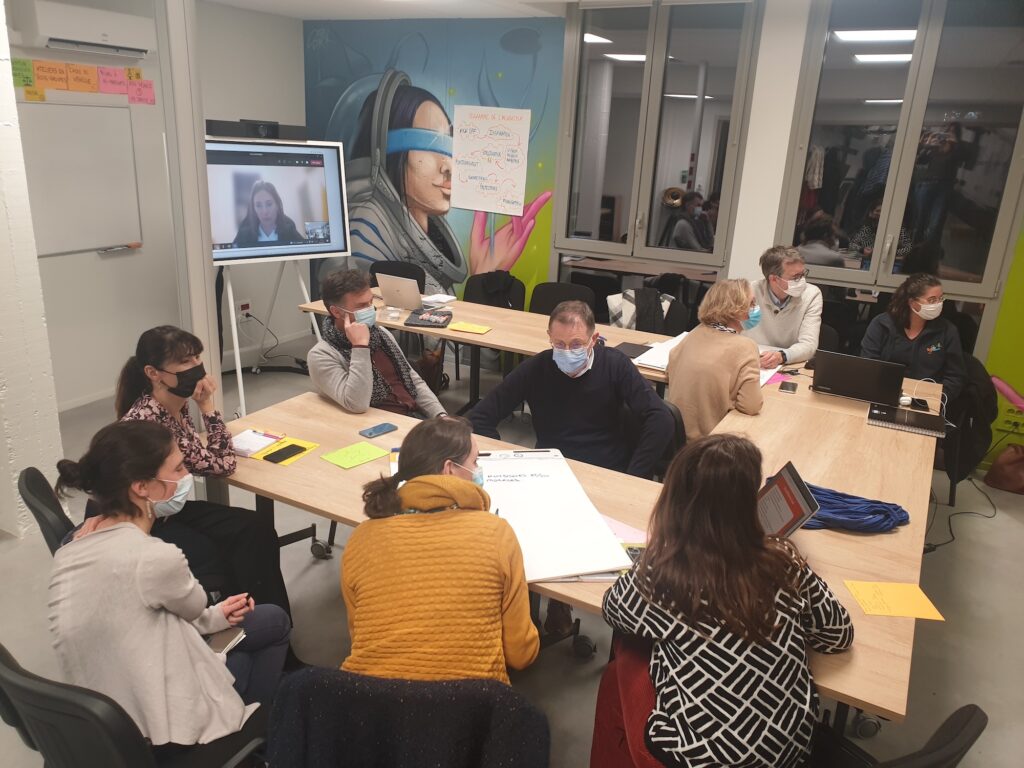Could the crisis context we live in be a catalyst for the development of patronage? This is evident from recent data on corporate philanthropic practices. Since the onset of the health crisis, sponsor companies have been widely mobilized and even joined forces to address the specific challenges of their territory. In Poitiers, a collective approach illustrates a fundamental trend.
Patrons and the crisis
Since its foundation in 1979, the Admical association has worked with companies to promote the dynamics necessary for the development of sponsorship in France. According to the latest barometer, sponsoring companies mobilized extensively in favor of the structures that needed it. For Marie-Victoire Abbou, General Delegate of Admical, companies have overcome their own difficulties in solidarity with the associative and hospital world: “From large companies that donate several million euros, to SMEs that are committed to the players in their territory, many examples show an unprecedented commitment. »
Just months after the onset of this crisis, sponsors continue to support the evolution of these needs of actors in the field. 41% of them even think about changing their sponsorship policy over time. The desire for lasting engagement that emerges from this data represents one of the most interesting trends: “Beneficiaries are now more likely to support the structural needs of associative actors (salaries, investments, structural costs) to help them globally pursue their mission, while traditionally they prefer to give their donations to specific projects”explains Marie-Victoire Abbou.
Collective approaches and organizations between sponsors
In recent years, many examples of collaborations and partnerships between sponsoring companies have emerged. “Since the Covid crisis, this collective trend has increased even more. Faced with the emergency, companies tend to unite. It’s a very positive sign.”underlines the general representative of Admical.

To pool their resources and increase efficiency, companies have gathered around collectives that already exist or were founded at the start of the crisis. In addition to the usual competition issues, many of them play the cards of cooperation between private actors, relying on the expertise of associations, NGOs and public institutions.
The trend that existed at the national level is now reflected at the local level. This is the case in Poitiers, where the creation of a Foundation is based on the common desire of local leaders to pool their sponsorship budgets to collectively support projects.
In Poitiers, birth of a territorial foundation
At the initiative of the Libellud Corporate Foundation, which supports projects in the field of education and youth, a group of local entrepreneurs has started the establishment of a territorial foundation.

With a common vision of their field of activity, these economic actors, members of the Center for Young Leaders (CJD), want to unite local actors to contribute to making Vienne an attractive, sustainable and united area. Under the guidance of Admical, a first group of leaders has been meeting since September 2021.
“We want to support and finance actions in the field of solidarity and sustainable and economic development, primarily aimed at young people.” explains Pascal Cobrun, member of the CJD, which organizes the monthly committees of the working group. The mission defined, the collective now dedicates its efforts to the creative process.
Capital funds, company foundations, associations… There is no lack of legal structures for patronage. After careful consideration of the various options, the status of a protected foundation attracted the attention of the collective. This choice allows them to develop their project under the auspices of a “sheltering” foundation. The latter will be responsible for the establishment, accounting, financial and legal management of the new Foundation. A reassuring framework and an easy management that will give the collective a free hand to dedicate itself to its mission and to supporting and guiding projects.

In the coming weeks, the working group will choose the foundation that will house them. These members will also have to decide on the procedures for the selection of the projects they will support, on their organization and their governance, as well as on the search for future contributing companies within the collective of patrons.
When the roadmap still needs to be clarified, the ambitions become clear: “We have set ourselves the following three-year targets: 50 contributing companies, EUR 200,000 a year raised, 500 hours of skills sponsorship per year, an equitable distribution of the funds according to our priority areas of action and an equitable distribution of the funds according to the different areas of the department (especially the rural areas).” says Pascal Cobrun.
Objectives that can count on the support of the government since since the inception of the project, the municipality of Grand Poitiers has actively supported the approach by participating in the working meetings.